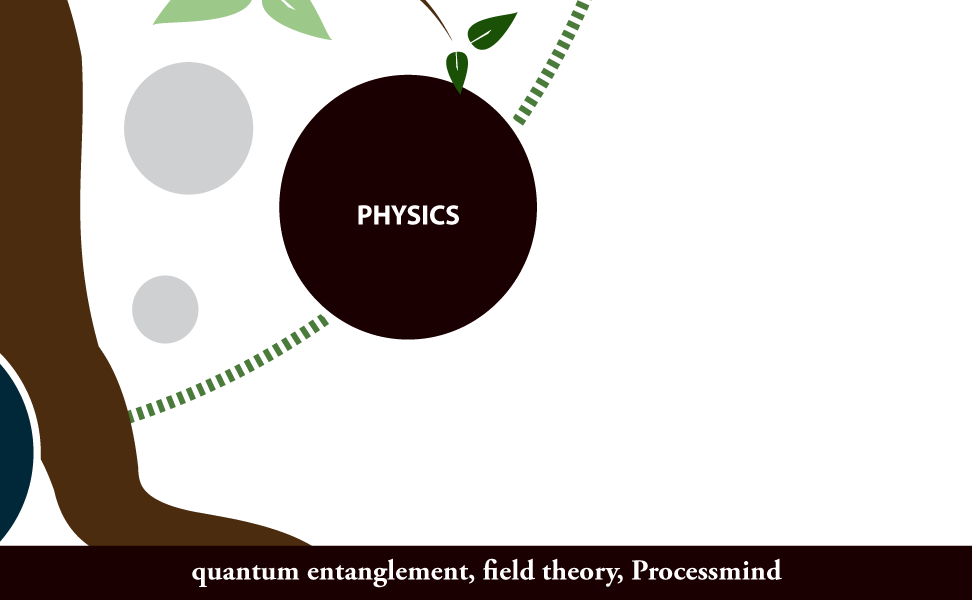Physics
How do physics and psychology relate to each other?
Are the worlds of facts and dreams completely distinct?
Does being real mean you have to abandon your intuition and irrational experiences?
Arnold Mindell, originally trained as a physicist at Massachusetts Institute of Technology (MIT), developed the Processwork paradigm to create a model that could integrate the worlds of causal reality and subjective, dreamlike experiences.
Mindell shows how the modern physics of relativity and quantum mechanics, in particular, provide powerful metaphors for understanding psychological experience. And he suggests how physics needs to go further in order to explain the totality of our experiences:
“I have said that physics needs an additional principle, which assumes that the universe is curious and not only wants to know itself through reflection but wants to become conscious. We experience this principle in terms of our own curiosity about ourselves.”
Arnold Mindell, (2000).[1]Mindell, A. (2000). Quantum Mind: The Edge between Physics and Psychology. Portland, OR: Lao Tse Press.
Processwork is built on a central idea of modern physics: that consciousness is a fundamental principle of the physical world. Mindell suggests that curiosity and the increase of awareness may be an inherent part of natural systems.
Processwork demands a deeply democratic attention to experiences that belong to the world of so-called ‘hard facts’ and to those which are subjective and cannot be shared or confirmed by an objective observer. Both aspects of perception together make up the real world. Without including and working with both aspects of our perception we have only a partial description of reality, and we lack the very information we need to solve our difficult problems.
Mindell calls the world of facts “consensus reality” because it can be defined as perceptions we can verify through consensus. For example, the laws of gravity or the fact that it is currently day and not night. In contrast, “non-consensus reality” includes all the other qualitative, dreamlike and sentient aspects of our perception, what philosophers call qualia. For example, the feeling you have when you see the sunrise, or wake up from a disturbing dream, cannot ever be directly shared or confirmed by anyone else, yet they are no less real.
Join our community space to find out about learning opportunities at the Process Work Institute
References
| ↑1 | Mindell, A. (2000). Quantum Mind: The Edge between Physics and Psychology. Portland, OR: Lao Tse Press. |
|---|

